Politics
France proposes Hezbollah withdrawal, border talks for Israel-Lebanon truce

France has delivered a written proposal to Beirut aimed at ending hostilities with Israel and settling the disputed Lebanon-Israel frontier, according to a document seen by Reuters that calls for fighters including Hezbollah’s elite unit to withdraw 10 km (6 miles) from the border.
The plan aims to end fighting between the Iran-backed Hezbollah and Israel at the border. The hostilities have run in parallel to the Gaza war and are fueling concern of a ruinous, all-out confrontation.
The document, the first written proposal brought to Beirut during weeks of Western mediation, was delivered to top Lebanese state officials including Prime Minister Najib Mikati by French Foreign Minister Stephane Sejourne last week, four senior Lebanese and three French officials said.
It declares the aim of preventing a conflict “that risks spiraling out of control” and enforcing “a potential ceasefire, when the conditions are right” and ultimately envisions negotiations on delineation of the contentious land border between Lebanon and Israel.
Hezbollah rejects formally negotiating a de-escalation until the war in Gaza ends, a position reiterated by a Hezbollah politician in response to questions for this story.
While some details of similar mediation efforts by U.S. Middle East envoy Amos Hochstein have been circulating in recent weeks, the full details of the French written proposal delivered to Lebanon have not previously been reported.
The three-step plan envisages a 10-day process of de-escalation ending with the border negotiations.
One French diplomatic source said the proposal had been put to the governments of Israel, Lebanon and Hezbollah.
France has historical ties with Lebanon. It has 20,000 citizens in the country and some 800 troops as part of a U.N. peacekeeping force.
“We made proposals. We are in contact with the Americans and it’s important that we bring together all initiatives and build peace,” Sejourne told a news conference on Monday.
The plan proposes Lebanese armed groups and Israel would cease military operations against each other, including Israeli airstrikes in Lebanon.
Several non-state groups, including Palestinian factions, have mounted attacks on Israel from south Lebanon during the latest hostilities, though Hezbollah is the dominant power in the area with a fighting force widely seen to outgun the Lebanese army.
The Lebanese armed groups would dismantle all premises and facilities close to the frontier, and withdraw combat forces – including Hezbollah’s elite Radwan fighters and military capabilities such as antitank systems – at least 10 km north of the frontier, the document proposes.
Any such withdrawal could still leave Hezbollah fighters much closer to the border than the 30 km (19 mile) withdrawal to Lebanon’s Litani River, stipulated in a U.N. resolution that ended a war with Israel in 2006.
The shorter withdrawal would help ensure rockets did not reach villages in northern Israel that have been targeted with anti-tank missiles and was a compromise seen as more palatable to Hezbollah than a retreat to the Litani, one Western diplomat with knowledge of the two-page proposal said.
Up to 15,000 Lebanese army troops would be deployed in the border region of south Lebanon, a Hezbollah political stronghold where the group’s fighters have long melted into society at times of calm.
Asked about the proposal, senior Hezbollah politician Hassan Fadlallah told Reuters that the group would not discuss “any matter related to the situation in the south before the halt of the aggression on Gaza”.
“The enemy is not in the position to impose conditions,” added Fadlallah, declining to comment on details of the proposal or whether Hezbollah had received it.
One of the Lebanese officials said the document brings together ideas discussed in contacts with Western envoys and had been passed on to Hezbollah. French officials told the Lebanese it was not a final paper, after Beirut raised objections to parts of it, the Lebanese official said.
An Israeli official said such a proposal had been received and was being discussed by the government.
Reuters reported last month that Hezbollah had rebuffed ideas suggested by Hochstein, who has been at the heart of the efforts, but that it had also kept the door ajar to diplomacy.
Asked for comment for this story, a State Department spokesperson said the United States “continues to explore all diplomatic options with our Israeli and Lebanese counterparts to restore calm and avoid escalation.” The White House did not immediately respond to a request for comment.
The Lebanese official said several elements prompted concern in Beirut, including the demand armed groups dismantle premises and facilities close to the border, which the official said was vaguely worded and could be used to demand moves against Hezbollah-affiliated civilian institutions.
‘UNCLEAR’ ELEMENTS
Tens of thousands of people have fled homes on both sides of the border since the fighting began on Oct. 8.
Israeli strikes have killed nearly 200 people in Lebanon, 170 of them Hezbollah fighters. Attacks from Lebanon have killed 10 soldiers and five civilians in Israel.
But the strikes have mostly been contained to areas near the border and both sides have said they want to avoid all-out war.
Numerous Western envoys have visited Beirut to discuss ways to de-escalate the fighting, mostly meeting with Lebanese state officials rather than Hezbollah, which is designated a terrorist organisation by the United States.
One of the Lebanese officials said a French technical delegation returned to Beirut two days after Sejourne’s visit to discuss details, following the Lebanese objections.
Another of the Lebanese officials said Beirut had not responded to the proposal, adding that it was neither signed nor dated and was therefore not deemed official enough to warrant a response.
THREE-STEP APPROACH
The proposal recalls a ceasefire which ended a war between Hezbollah and Israel in 1996, and also U.N. Security Council resolution 1701 that ended the 2006 war.
It maps out three steps over 10 days.
The two sides would cease military operations in step one. Within three days, step two would see Lebanese armed groups withdrawing combat forces at least 10 km north of the frontier and Lebanon would initiate the deployment of soldiers in the south. Israel would cease overflights into Lebanese territory.
As the third step, within 10 days, Lebanon and Israel would resume negotiations on delimiting the land border “in a gradual way” and with the support of the U.N. peacekeeping force UNIFIL.
They would also engage in negotiations on a roadmap to ensure the establishment of an area free of any non-state armed groups between the border and the Litani river.
Hezbollah has previously signalled it could support the state negotiating a deal with Israel to settle the status of disputed areas at the border to Lebanon’s benefit.
One of the issues to address is financing for the Lebanese army, severely weakened by a severe financial crisis in Lebanon.
The proposal calls for an international effort to support the deployment of the Lebanese army with “financing, equipment, training”. It also called for “the socio-economic development of southern Lebanon”.
© Reuters
Current Affairs
New survey points to coalition-led SA, but voter apathy a major factor
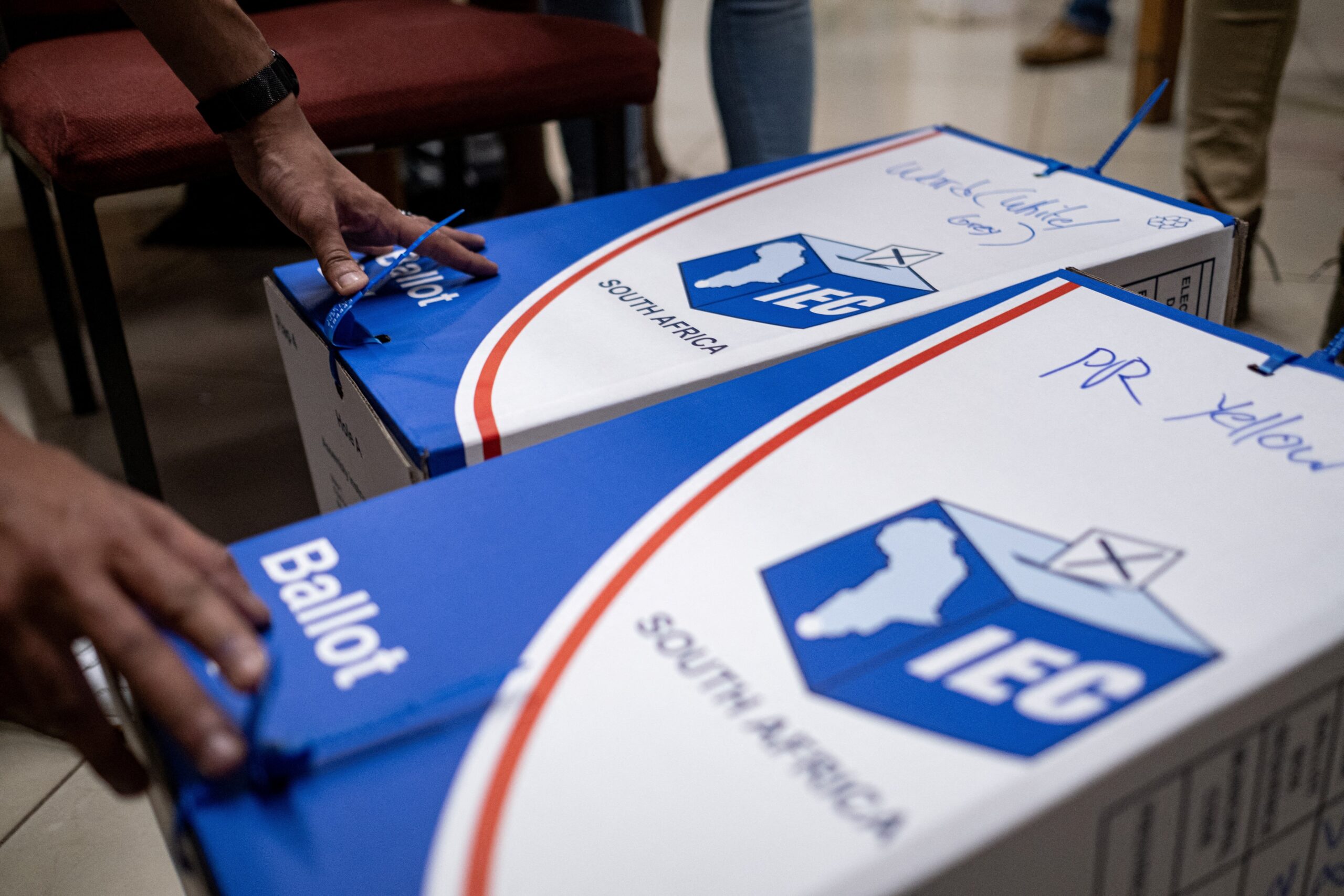
The results of an in-depth survey conducted by African Innovation Research SA (AIRSA) point to the country’s future being in the hands of coalitions and raise concerns about voter apathy, especially among the youth.
The initial sample comprised some 5 000 participants, of whom 46% confirmed they were either not interested in voting despite being registered or had not registered.
The majority of those surveyed by the independent research company based in Cape Town were in the 18–35 age group, a generation who are increasingly disillusioned with how the country is run.
The remaining 2 700 participants, who were interviewed from across a broad section of South Africa’s nine provinces, indicated that support for the ruling ANC is in decline, dipping below the 50% mark to 43% overall.
The ANC’s strongholds remain the Eastern Cape (61% of those surveyed), 58% in the Free State and 65% in Limpopo, where its challenger is the EFF at 23.7%.
In the country’s fourth-largest economy, Mpumalanga, the ANC leads with 52.3%, the EFF at 21.7% and the DA at 19.7%.
In the North West province, it’s a similar pattern, albeit reversed, with the ANC at 48.3%, the DA at 27.7% and the EFF at 20.0%, while in the Northern Cape, the ANC leads with 47.3%, followed by the DA with 24.3% and the EFF with 15.7%.
The country’s economic engine, Gauteng, is a key player in the power dynamics. Here, the ANC garnered 38.7%, but the EFF is growing its base to 19.3%, challenging the DA’s 20% of the province’s voters.
In the Western Cape, as expected, the DA holds onto a leading margin at 46.0%, with the ANC and EFF at 22.3% and 8.7% respectively. Gayton McKenzie’s Patriotic Alliance (PA) also features in the country’s southernmost province, making a notable showing at 5%.
While former president Jacob Zuma may have been barred from becoming a member of Parliament in the Constitutional Court this week, the new uMkhonto weSizwe Party (MKP) will play a pivotal role in KwaZulu-Natal. Results of the AIRSA survey show that while the ANC currently remains ahead with 28.7%, it’s an even race in the province with similar support for the IFP at 26.0% and MKP at 26.7%.
As experience dictates, the smaller parties will begin a series of bargaining tactics as to whose deck they end up in and call the shots.
At collectively accounting for around 20% of the upcoming vote, these potential coalition partners carry significant influence.
AIRSA also noted that voting in this sector is personality-driven as opposed to ideology.
The fragmentation of South Africa’s political landscape could also contribute to increasing dissatisfaction and disillusionment, particularly when linked to the country’s youth and increasing unemployment.
© IOL (Cape Times)
Politics
Zuma lashes out at judges after election ban
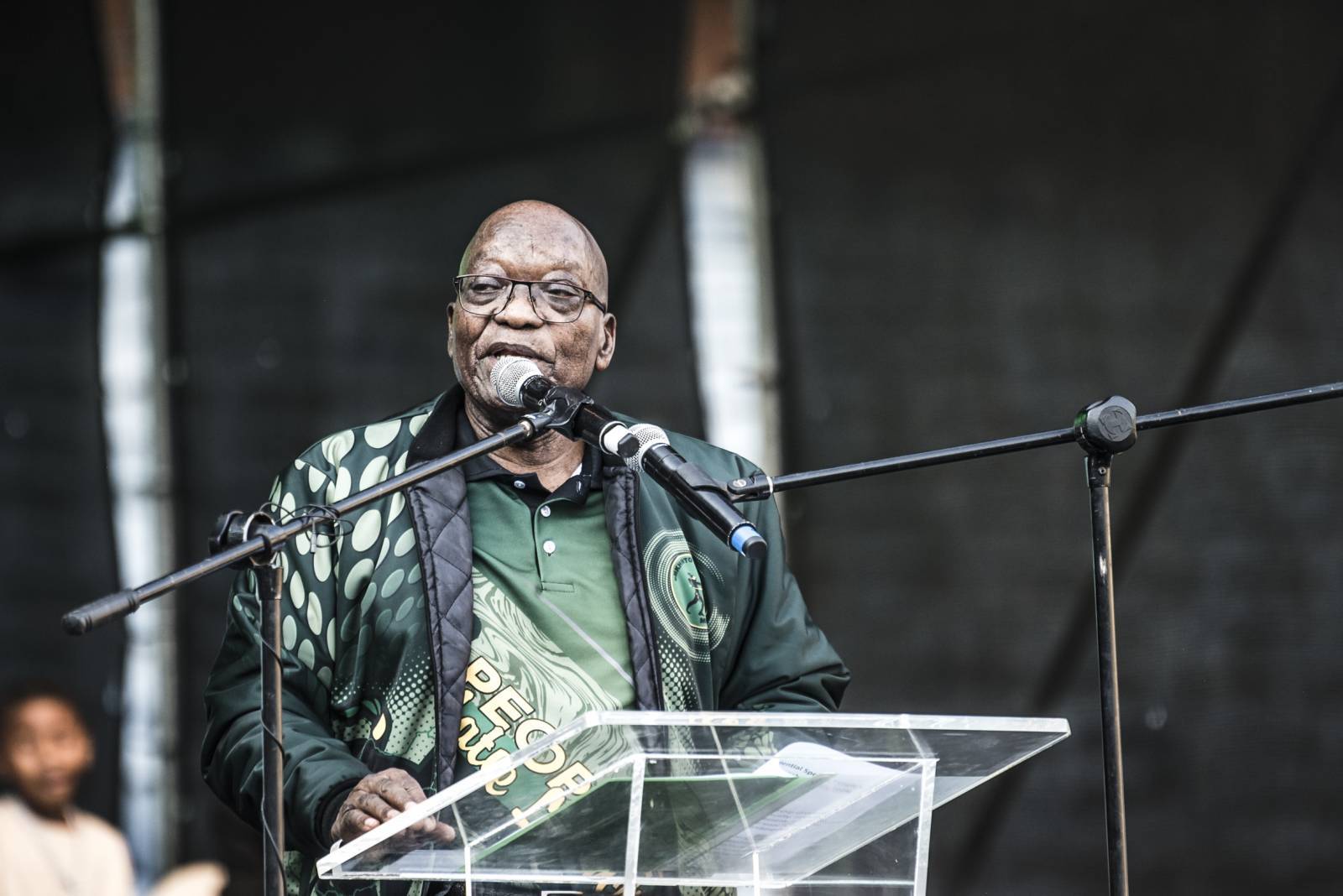
Former President Jacob Zuma has launched a scathing attack on some of the country’s top judges after he was barred from running for parliament on Monday.
In his first interview since the ban, Zuma told the BBC the Constitutional Court was wrong to decide he was unfit to run, based on his 2021 conviction for contempt of court.
“I expected that from our judges, but they are definitely wrong. Not correct,” the 82-year-old said, adding that the constitution should be changed.
Ahead of next week’s general election, Zuma had been campaigning under the banner of the newly formed uMkhonto weSizwe (MK) party.
He joined the party after falling out with the governing African National Congress (ANC), which he used to lead.
The electoral commission argued that the constitution bars anyone who was sentenced to more than 12 months in prison from serving as a lawmaker – a view backed by the Constitutional Court judges.
Zuma was convicted in 2021 for refusing to testify at an inquiry investigating corruption during his presidency.
His lawyers had insisted he was entitled to become an MP as his sentence was reduced to three months after current President Cyril Ramaphosa released him from prison in what was widely seen as an attempt to placate the former president’s angry supporters.
“The judges of the Constitutional Court have acted very funny to me – towards me in particular,” Zuma told the BBC.
“They are not taking into account the will of the people of this country, they use their own will.”
He was president from 2009 to 2018 before being forced out as leader of the ANC amid allegations of widespread corruption in his government.
The corruption, widely known as “State Capture”, saw hundreds of millions of rands of public assets taken into private hands. Zuma has always denied any direct role in corruption, but is due to face trial next year on allegations of bribery.
He told the BBC he had been wrongly stripped of his role as leader of the ANC.
“I don’t know what ‘State Capture’ means. If people say I am corrupt, what did I do? Do you have any facts about it? Am I guilty?
“I was removed before the end of my term, and nothing was produced as evidence that this was an issue.”
Zuma’s MK party had previously voiced its desire to change South Africa’s constitution, which was drawn up 30 years ago at the birth of the country’s democracy following decades of white-minority rule.
Asked about this in the light of his election ban, Zuma reiterated that the historic document needed to be changed.
“This constitution in the continent of Africa is guided by the laws from Europe, not us,” he said.
“There is nothing that has come right in this continent because we are still dominated by those who were the ones [who] slaved us, and after slavery, oppressed us, and after oppression, put their own laws to run us.
“There are details that clash with our lives.”
An Ipsos opinion poll released last month gave MK 8% of the vote, and the ANC 40% as it loses support to MK and other opposition parties.
But some analysts suggest that with the governing party stepping up its campaign in recent weeks, it could still cross the 50% mark. But if the ANC gets less than half of the vote, it would lose its majority for the first time in 30 years.
MK is expected to do especially well in Zuma’s home region of KwaZulu-Natal. Some opinion polls suggest it could emerge as the biggest party in KwaZulu-Natal, ending ANC dominance of the region.
After Zuma was jailed for contempt of court in 2021, angry supporters sparked days of deadly riots. More than 300 people were killed in the clashes.
On Wednesday Zuma said this violence demonstrated the scale of public support for him.
“This must tell you that the masses of this country loves Zuma – that’s why we had that,” he said.
When asked by the BBC if he would use this interview to call for peace and calm ahead of next week’s election, Zuma replied: “I’ve always done so.”
© BBC News
Current Affairs
Iran’s supreme leader leads prayers at Raisi funeral
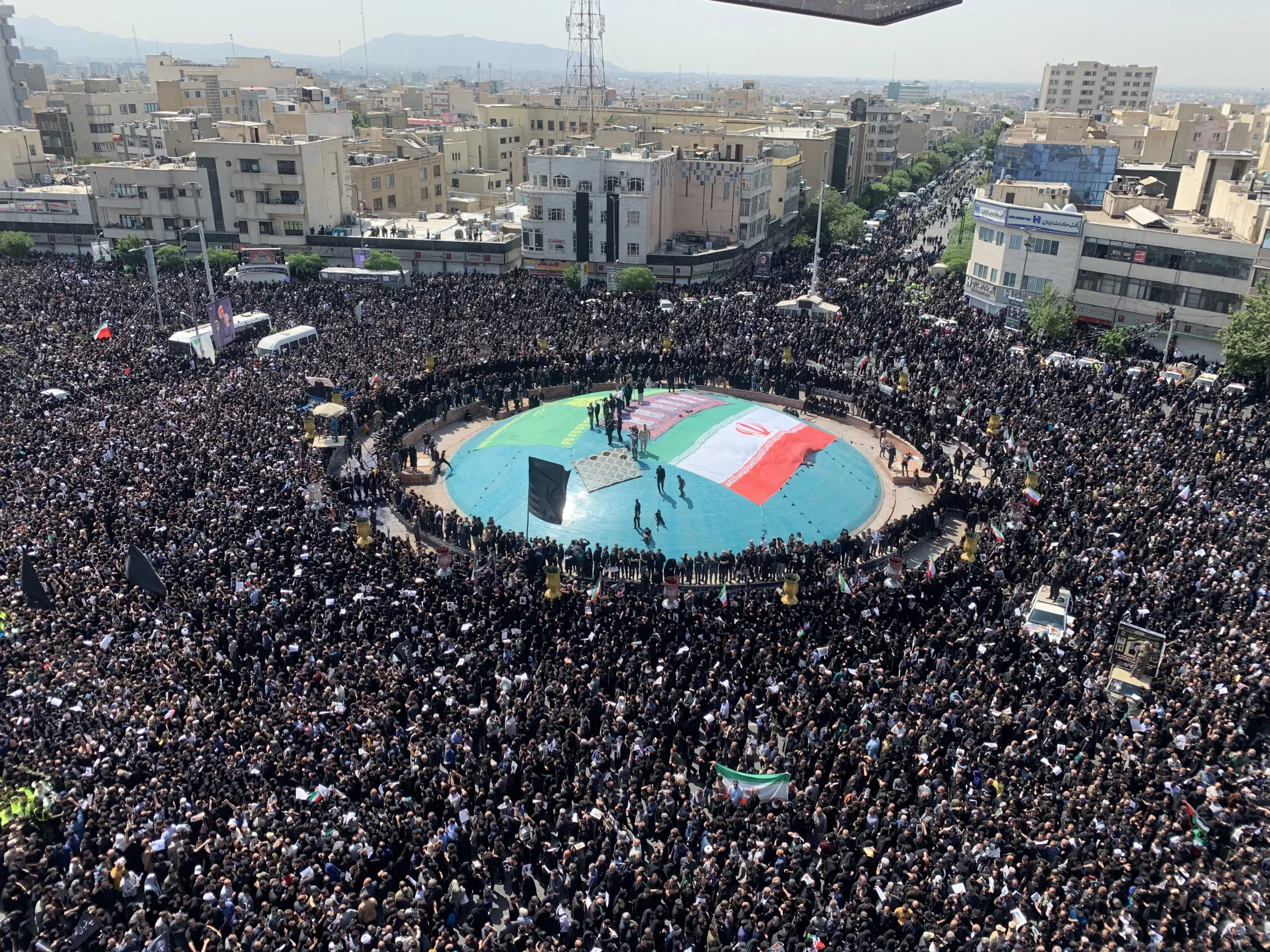
Iran’s supreme leader has presided over a funeral for the country’s late president, foreign minister and others killed in a helicopter crash on Sunday.
Ayatollah Ali Khamenei led prayers at Tehran University, where caskets carrying the dead were draped in Iranian flags.
President Ebrahim Raisi died alongside Foreign Minister Hossein Amir-Abdollahian and six others in a helicopter crash near the border with Azerbaijan.
Authorities had warned against demonstrations against the funeral procession and insults posted online.
“Oh Allah, we didn’t see anything but good from him,” Ayatollah Khamenei said in the standard prayer for the dead in Arabic.
Iran’s acting president, Mohammad Mokhber, stood nearby and openly wept during the service.
People then carried the coffins out on their shoulders, with chants of “Death to America” heard outside.
They loaded them onto a trailer for a procession through downtown Tehran to Azadi Square, where Raisi gave speeches in the past.
In attendance were top leaders of Iran’s paramilitary Revolutionary Guard, one of the country’s major power centres.
Also on hand was Ismail Haniyeh of Hamas, the militant group that Iran has armed and supported during the ongoing Israel-Hamas war.
Haniyeh is widely considered Hamas’s overall leader and has been a prominent member of the movement since 1980. The US Department of State designated him a terrorist in 2018.
“I come in the name of the Palestinian people, in the name of the resistance factions of Gaza…to express our condolences,” Haniyeh said.
He also described meeting Raisi in Tehran during Ramadan, the holy Muslim fasting month.
He said he heard the president say that “the Palestinian issue” remains the key one of the Muslim world, which “must fulfil their obligations to the Palestinians to liberate their land”.
He also claimed that Raisi called Hamas’ October 7 attack in Israel, which saw 1,200 people killed and 250 others taken hostage, an “earthquake in the heart of the Zionist entity”.
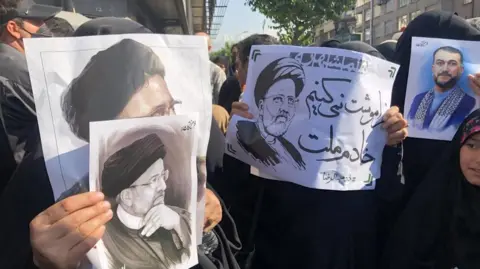
Also expected to attend services in Tehran were Pakistan’s Prime Minister Shehbaz Sharif and a delegation from the Taliban of Afghanistan, which included their Foreign Minister Amir Khan Mutaqqi.
Iran’s theocracy declared five days of mourning over Sunday’s crash, encouraging people to attend the public mourning sessions.
Typically, government employees and schoolchildren attend such events en masse, while others take part out of patriotism, curiosity or to witness historic events.
For Iran’s Shiite theocracy, mass demonstrations have been crucial to demonstrating the legitimacy of their leadership since millions thronged the streets of Tehran to welcome Grand Ayatollah Ruhollah Khomeini in 1979 during the Islamic Revolution, and also attended his funeral 10 years later.
An estimated one million turned out in 2020 for processions for the late Revolutionary Guard General Qasem Soleimani, who was killed in a US drone strike in Baghdad.
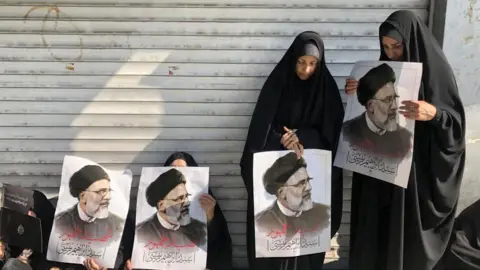
Across the capital, large banners were raised hailing Raisi as “the martyr of service”, while others bade “farewell to the servant of the disadvantaged”.
Some residents in Tehran received texts urging them to attend Wednesday’s ceremonies, the AFP news agency reported.
Footage carried by state TV showed streets filled with mourners, many of whom were carrying pictures of Raisi or the Iranian flag.
Funeral rites for the men began on Tuesday in the city of Tabriz and the Shiite clerical centre of Qom, where thousands of mourners attended ceremonies.
After Wednesday’s procession in the capital, Raisi’s remains will be moved to South Khorasan province, before being transferred to his home city of Mashhad in the northeast.
He will then be buried on Thursday evening in the city after funeral rites at the Imam Reza shrine.
Raisi, a hardline cleric, was a highly divisive figure in Iran. In the 1980s, he oversaw the execution of scores of opposition activists while working as a prosecutor.
He unleashed a brutal crackdown against demonstrators angered by the killing of 22-year-old Mahsa Amini in 2022. She died three days after she was detained by morality police in the capital for allegedly violating Iran’s strict rules requiring women to cover their hair with a hijab, or headscarf.
But his ultra-conservative outlook won favour with supporters of the regime, and Raisi was viewed as a possible successor to Ayatollah Khamenei.
© BBC News
Politics
Ireland to recognise Palestinian state
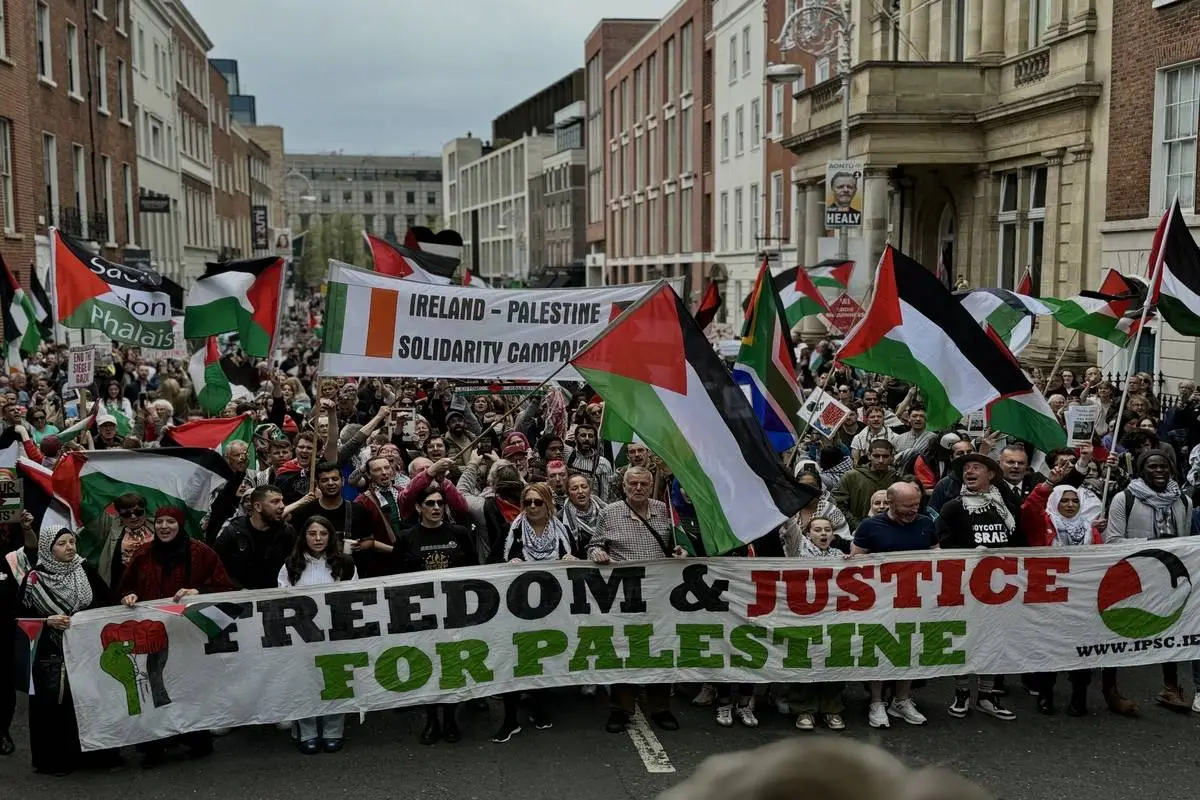
Ireland will recognise a Palestinian state, Prime Minister Simon Harris said on Wednesday, adding that he expected other countries to follow in the coming weeks after talking to world leaders.
“Today, Ireland, Norway, and Spain are announcing that we recognise the state of Palestine,” Harris said at a press conference.
“In the lead up to today’s announcement, I’ve spoken with a number of other leaders and counterparts and I’m confident that further countries will join us in taking this important step in the coming weeks,” he added.
He said a two-state solution was the only credible path to peace and security for Israel, Palestine and their peoples.
The recognition of statehood has particular resonance in Ireland given its history, Harris said.
“Taking our place on the world stage and being recognised by others as having the right to be there was a matter of the highest importance for the founders of our state,” he said.
He added that Ireland was unequivocal in fully recognising Israel and its right to exist “securely and in peace with its neighbours”, and he called for all hostages in Gaza to be immediately returned.
Ireland’s recognition of Palestine will be formally enacted on May 28, foreign minister Micheal Martin said on X.
© Reuters




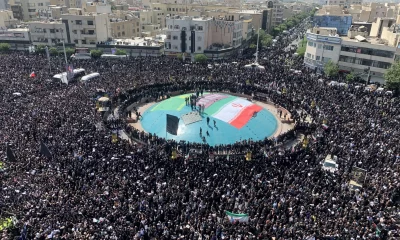

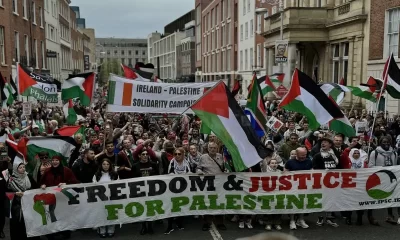

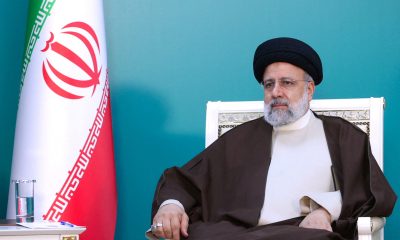

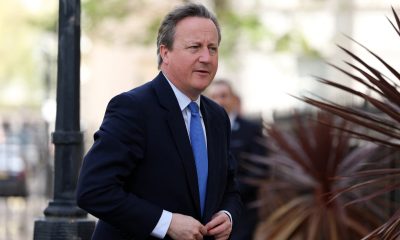








You must be logged in to post a comment Login